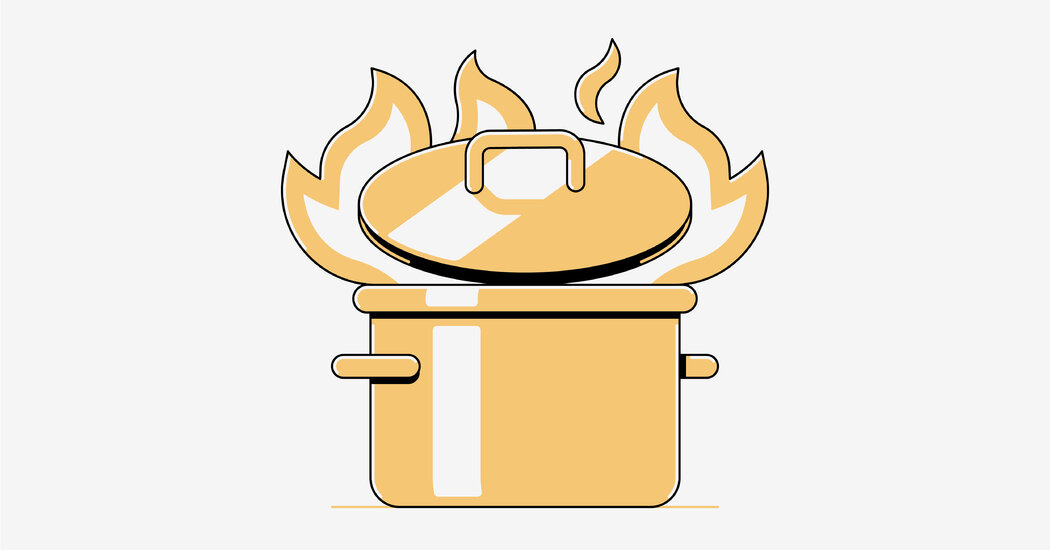
“Frying chicken is a common culprit,” says Bruce D. Bouch, a fire-program specialist at the U.S. Fire Administration. Cooking is the leading cause of residential fires, and burning grease is particularly dangerous. When you see oil smoking in a pan, it’s on the verge of combustion. Animal fats like lard tend to smoke around 370 degrees Fahrenheit, while vegetable oils like safflower oil catch fire upward of 450 degrees. Always watch hot oil on the stovetop. “If you get on the phone, start texting, answer the door — that’s when fires occur,” Bouch says. “If you have to walk away, turn your burner off.”
If something on your stove catches fire, fight your first instincts: The two most common responses — throwing water on it and picking up the pan — each exacerbate the problem. Water will turn to steam, causing the oil to jump and pop out of the pan, Bouch says, sending “a whole ball of flame with it.” Moving the pan will also spread the fire and will most likely result in burns. Bouch spent much of his early career as a deputy fire marshal in Maryland. He remembers a man who burned his house down: Inspecting the aftermath, Bouch could see the trail of spilled, burning oil from the kitchen through the house and out the door. The man ended up with third-degree burns.
Slide a lid over a pan that erupts in flames and turn off the burner. If you don’t have a lid, use a cookie sheet. “Starve it of air,” Bouch says. Wait 10 to 15 minutes before lifting the lid, and open it away from your face. If you can’t get a lid over the fire, or if the fire has escaped the pan, use an extinguisher. But don’t linger in a burning kitchen. Get everybody out. Close the doors behind you. Call the Fire Department.
Bouch has spent much of his 30-year career thinking about the hazards of kitchen fires. In one study of grease-fire burn patients admitted to the University of Washington burn center over a 10-year period, nearly 90 percent had burns on their arms in combination with their face, trunk or legs; 40 percent of patients required skin grafts. Knowing the risks has changed his cooking habits. “I’m more of an air-fryer guy now,” Bouch says.



